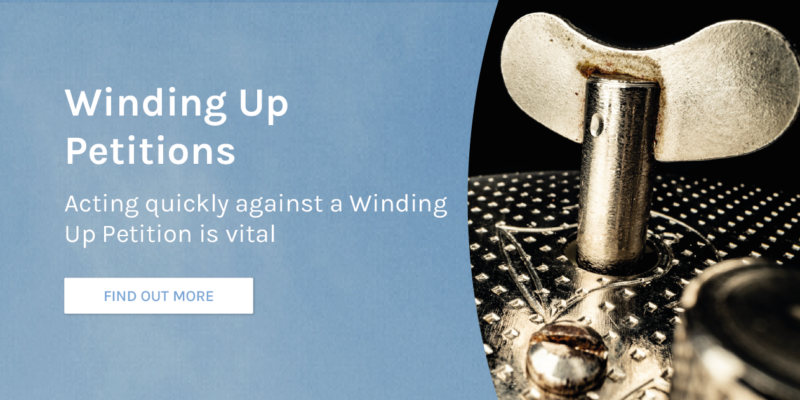In business, maintaining a positive relationship with suppliers is vital to continued, seamless success of your company. However, if you are struggling with poor cash flow, it can be easy to find yourself also not able to fulfil all obligations to suppliers.
When a company can’t pay suppliers, the consequences can be significant. Not only will it affect your relationship with suppliers, it could impact how easy you are able to find suppliers in the future. It can also lead to financial issues.
In this post, we will discuss the possible outcomes if a business can’t pay suppliers, and detail some guidance on what can be done to help mitigate the situation.
By understanding the outcomes if you can’t pay suppliers, you can better prepare yourself for the possibility, allowing you to better make more informed decisions.
What Will Happen if I Can’t Pay Suppliers?
If your company is faced with poor cash flow and is unable to keep up with key payments to suppliers, you could end up also dealing with legal action being taken against the business, and even its directors should the situation call for it.
When a business is struggling, supplier payments can become the cause for a great deal of stress each and every month. While they may be willing to look the other way for you for a period, eventually the situation will devolve and could get nasty.
If your business can’t pay suppliers, there are a number of possible consequences. Here are just a selection of possible outcomes:
Penalties/Interest
Some suppliers are known to operate with payment terms that outline the outcome in the event of late payment. This can include financial penalties and interest charges.
Impacted Supplier Relationship
You can have the best priced, most consistent supplier in the world; somebody who’s willing to go above and beyond for you, but if you consistently fail to pay them, you can lose them.
A supplier will, more often than not, lose trust in a firm if they’re incapable of paying their bills on time. Strained relationships with a supplier can lead to increases to the prices they offer you, them refusing your custom, and it could even lead to you receiving a negative reputation amongst local suppliers making it tough to forge new partnerships.
Operations Can Be Disrupted
It may be obvious, but if you consistently fail to deliver payment to your supplier, they will likely opt to suspend your service. This can result in you being unable to source a number of items you may need.
When finances are tight, any disruption to your operation could prove fatal.
Legal Action
Generally reserved for more severe cases, suppliers can consider legal action against you for any debt of £750 or more. For this amount they are able to petition the courts to wind up your firm in order to regain the money owed.
If you find yourself in this position, it is vital that you get in touch with a licensed insolvency practitioner who can determine whether your firm is solvent and recommend how best you should deal with the situation at hand.
What Should I Do If I Can’t Pay Suppliers?
If your business can’t pay suppliers it’s vital that you act immediately. The more swift your action, the lesser the damage. Additionally, it’s important that you communicate as openly and as honestly with your supplier as you can. A forthright conversation without prompting could heal some fractures that have been building and gain you some much needed extra time.
Here are just a few steps you should consider if you can’t pay suppliers:
Take a Step Back and Review
One of the first things you should do if you can’t pay suppliers is to not rush into anything. While it might be tempting to jump straight on an issue, incorrect moves at a crucial time are incorrect regardless of how quickly you do them.
You should conduct a thorough assessment of your finances, review your current levels of cash flow, do you have any outstanding invoices? You should attempt to gain an understanding of your current situation in order to gain increased clarity of your financial position.
Contact the Suppliers
An obvious step if you can’t pay suppliers, but one many may not think to do, is to contact them. Reach out to your suppliers as early into the arrears as possible and explain your position as openly and honestly as you can and, if you can, propose a new plan to resolve the issues that would suit all parties.
Negotiate New, More Affordable Payment Terms
When you’re in contact with your suppliers, you’ll want to negotiate new payment terms with them — terms that are more manageable for you given your current financial difficulties than what you were dealing with previously.
Things you can consider that would make repayment more manageable include:
- Extended Payment Deadlines
- Instalment Plans
- Discounts for early payments
Explore Your Options
If your position is unsalvageable as it is, you may wish to consider alternative financing options. Things you may consider, as long as you’ve carefully considered the pros and cons, include:
- Credit
- Short-term loans
- Government programs to support at-risk businesses
Seek Expert Assistance
If your position is particularly severe, and you are unsure how you should proceed to get out of it, it may be a good idea to seek guidance from an expert.
An insolvency professional, for example, can provide expert advice on ways you could restructure your business or implement some form of recovery plan.
Can I be Forced Into Administration?
It is possible to be forced into administration. While a director/shareholder will primarily appoint an administrator, the courts and ‘floating charge holders’ can, if the situation applies, appoint an administrator on your behalf. Examples of floating charge holders would include banks, bondholders, or, in some cases, trade creditors.
If a floating charge becomes fixed, the charge holders will gain the necessary powers to appoint an administrator on your behalf or request the court to do so.
What if the Burden is Too Much?
If a company regularly finds that it can’t pay suppliers and is scrambling to come up with methods of making it through the months, juggling bills and debts, it’s highly likely that they will also owe money to other parties, such as outstanding tax debts to HMRC.
If you find yourself in this difficult predicament, and you have exhausted all other options, liquidation could be your only viable option left. Here are some reasons why:
- Closure: Liquidation is the act of closing the business and selling its assets to repay creditors. This will ensure that all debts are resolved as simply and openly as possible.
- Protection: Entering into liquidation affords a level of protection for company directors — shielding them from personal liability.
- Cut the Stress: Struggling to keep your business afloat can be highly stressful. Liquidation will act to, in as structured a manner as possible, alleviate all of this stress and allow you to focus on what’s to come.
- Fresh Start: While it may be difficult to separate yourself from the past, liquidation allows you to explore new ventures without the baggage that comes with past debts and financial obligations.
For more information about putting your business into liquidation, check out our free guide. It should be remembered that liquidation is a serious decision that can have long-lasting consequences for you. Before you proceed down this route, you should contact a licensed insolvency practitioner who will be able to assess your situation and help you better understand whether liquidation is best for you.
Business Support When You Need It Most
If you can’t pay suppliers, there can be a number of implications that could leave a lasting implication for your business. However, as we’ve stated above, if you find yourself struggling to meet your obligations, there are things you can do.
If you take proactive measures and try to remain honest and open, you may be able to avoid some of the more serious issues that can arise, you can also seek expert assistance should you need it. An insolvency professional will be able to recommend what you can do and how you can help your situation.
At Inquesta Insolvency, we have been there and seen it all when it comes to commercial finance. We know how tough it can get and how stressful it can feel when your business is struggling with cash flow and can’t pay suppliers. As a result, we are perfectly placed to offer advice.
Our insolvency specialist has all the experience necessary to help you navigate what can be a difficult period. Regardless of what you need — whether it’s insolvency advice, support with business recovery, restructuring, and much more — we are here to help.
Get in touch today to learn more about what our team can do for you or to request a complimentary consultation.




